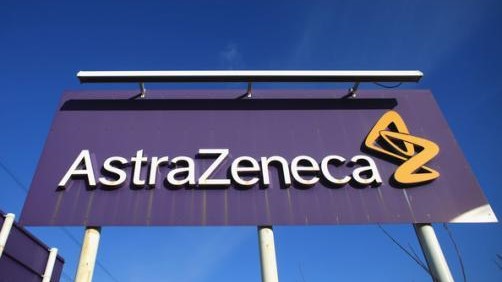AstraZeneca beats expectations in Q2, while GSK struggles during pandemic

AstraZeneca has beaten analysts’ expectations in its second quarter results, outshining its UK counterpart GlaxoSmithKline, which has been hit by disruption caused by the COVID-19 pandemic.
AZ’s second quarter sales increased by 8% compared with the same period last year to just under $6.3 billion.
While both companies are working on COVID-19 vaccines, it was AZ’s diverse range of products that drove the company forward.
Sales of the company’s lung cancer drug Tagrisso were up 32% to just over $1 billion for the quarter, and there could be much more to come.
AZ could add another use to Tagrisso’s label earlier in the disease to prevent the disease returning in patients who have just had surgery, based on results of the ADAURA trial announced at this year’s ASCO conference.
Based on findings from ADAURA Tagrisso has just been granted Breakthrough Status by the FDA in early stage EGFR-mutated non-small-cell lung cancer, setting up a faster six-month review for the label extension.
Sales of cancer immunotherapy Imfinzi were up 46% to $492 million, and revenues of ovarian cancer drug Lynparza increased 48% to $419 million.
In AZ’s cardiovascular and metabolic diseases division, sales of diabetes drug Farxiga were up 17% to $443 million and revenues in its respiratory diseases unit were driven by Symbicort, which increased sales by 12% to $653 million.
It was a different story at AZ’s UK counterpart, GSK, which missed its earnings targets as the company’s vaccines business suffered during the coronavirus outbreak.
GSK’s sales were down 2% compared with last year’s Q2 to £7.6 billion ($9.87 billion)
Patients also used up treatments stockpiled during the early stages of the COVID-19 pandemic, as lockdown restrictions have eased.
COVID-19 has bit into sales of GSK’s Shingrix shingles vaccine, with sales down 16% to $323 million as patients were unable to attend clinics to receive it during lockdown.
Vaccine update
Ironically for a company that specialises in vaccines, GSK does not have a potential COVID-19 vaccine in its development portfolio.
Instead it has opted to supply several companies with an adjuvant booster that magnifies a vaccine’s effect and lowers the dose requirement.
GSK issued a cautionary statement saying that previous forecasts outlined in its 2019 report are reasonable but “subject to greater uncertainty” because of the impact of the pandemic.
In a results conference, AZ’s CEO Pascal Soriot discussed the company’s strategy to produce its COVID-19 vaccine at cost price during the pandemic, instead of trying to make a profit like potential rivals such as Moderna and Merck & Co.
He told journalists attending the online conference: “We decided to do this at no profit simply because we felt there are times in life when companies need to step up and make a contribution.
“It is the kind of time in history when humanity is threatened as a whole and we need everybody to be vaccinated as the disease continues to evolve.”
There’s a suggestion that the company may increase prices once COVID-19 is no longer considered a pandemic, although the company said it was too early to give precise details about pricing.
Soriot said it was impossible to estimate the "long-term commercial opportunity" for the vaccine, although there may be more information available in the coming months.
AZ has already created a global supply chain capable of distributing two billion doses.
There are separate supply chains for the US and EU and agreements in place to cover countries including Russia. Negotiations are ongoing in countries including Japan, Brazil and South Korea.












